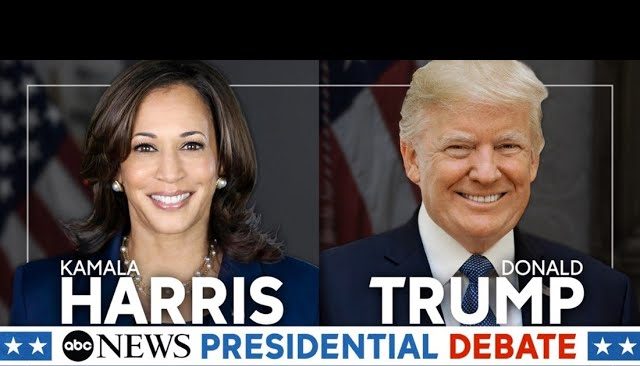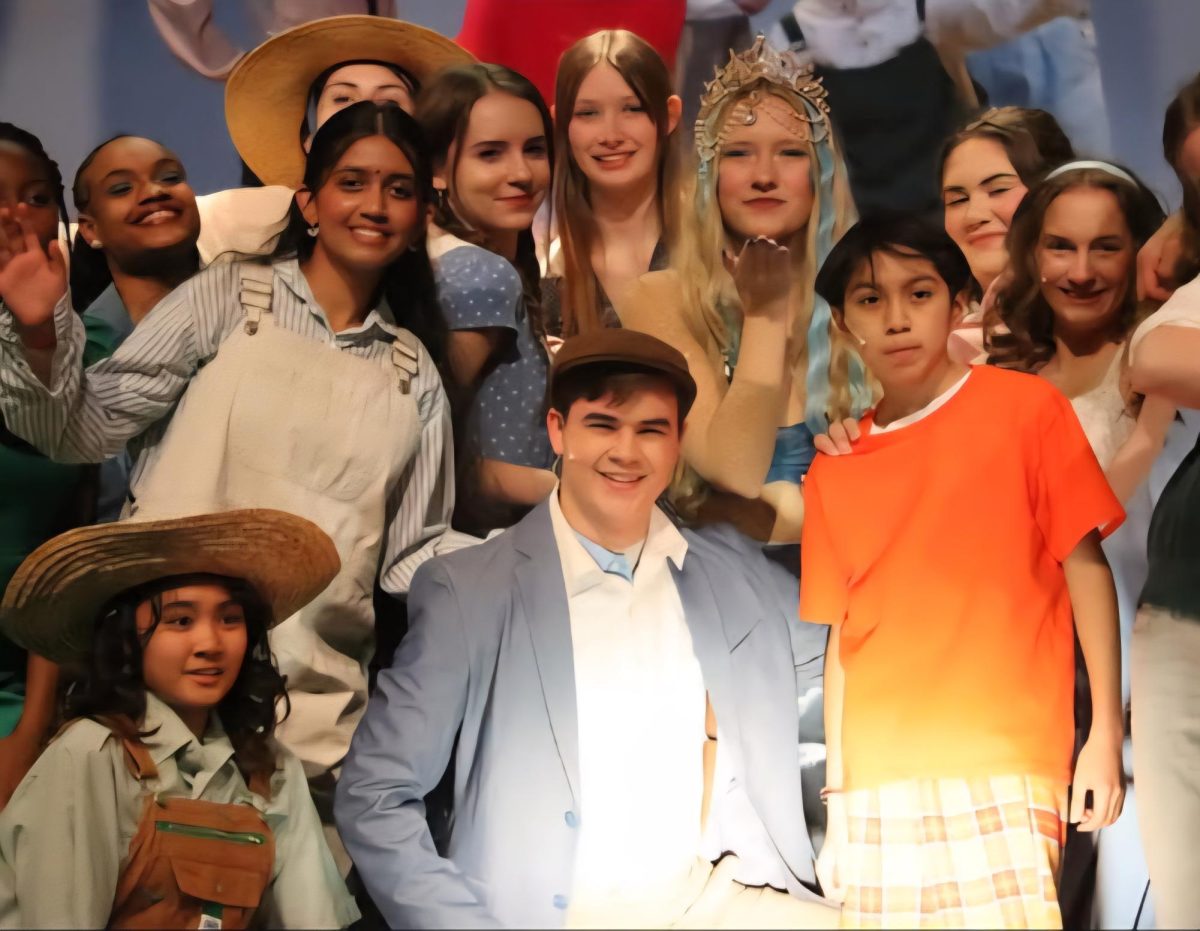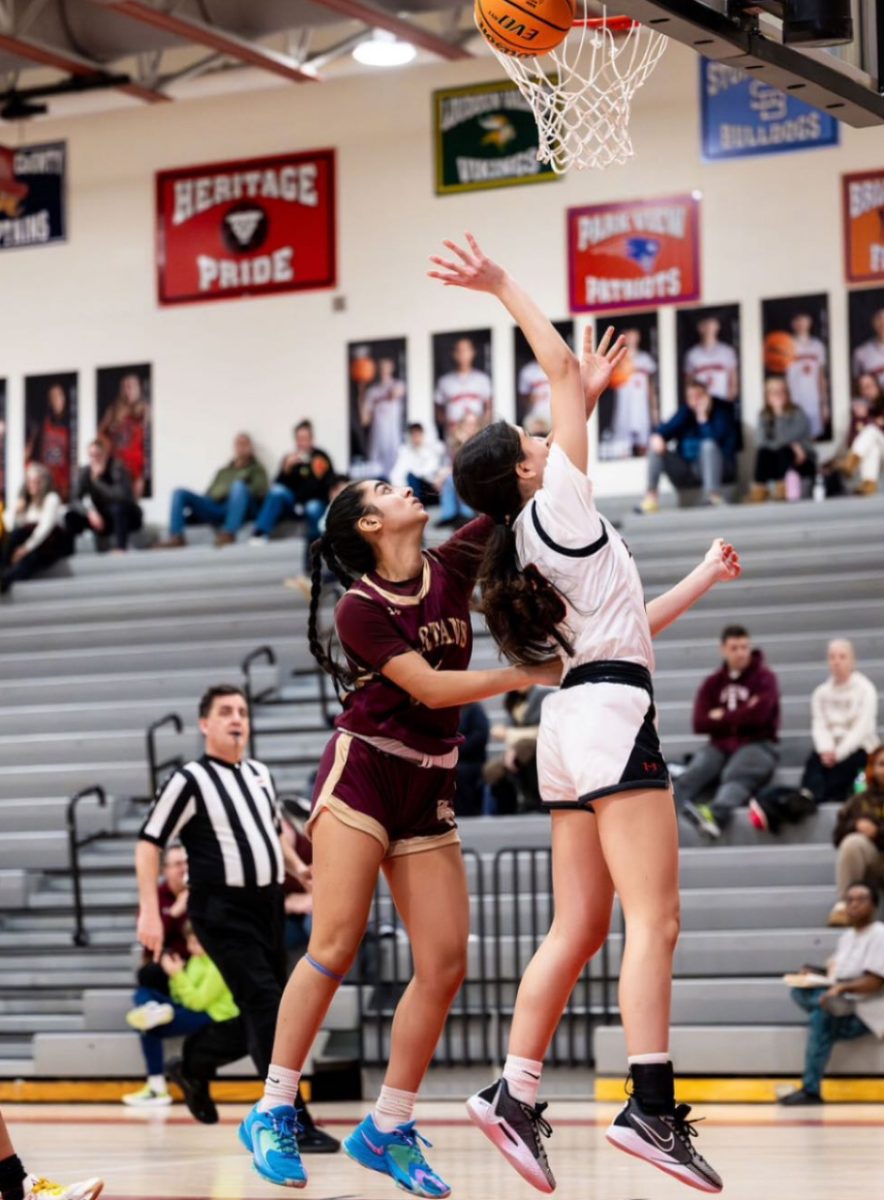Presidential debates have been one of the key factors in the upcoming election: a candidate’s performance can have a large impact on the outcome of elections. Now, we’ll see how the Kamala Harris and Donald Trump debate(s) will affect the election.
The first televised presidential debate was between Kennedy and Nixon in 1960. The debates first started being televised due to the public desire to see this type of news. Viewers for the first time were able to see their presidential candidates live under pressure.
In the Kennedy and Nixon election, Nixon was winning. Being President Eisenhower’s vice president as well as his “checkers” speech had given him a leg up against Kennedy, a young senator from Massachusetts. On the day of the debate, Nixon was returning from the hospital after a knee injury, and later that day, he injured himself again; this caused him to look very sick and tired on TV. Many people started to question whether Nixon was too old to be president. This became evident when Kennedy started leading the polls the following day. In the end, Kennedy won the election.
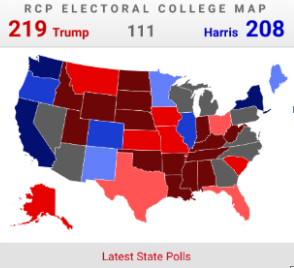
However, presidential debates now do not carry the same weight as they did before. People often have their mind set when it comes to the candidate they plan on voting for and watch the debate simply for entertainment purposes.
When the election season started, Donald Trump was winning the polls whilst President Joe Biden started to fall off. However, once the current president dropped out and endorsed Harris, the polls took a turn.
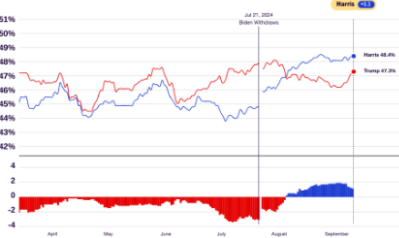
The vice president was getting more and more supporters while Trump started to fall behind. By September 9th, Harris was winning by 1-2%. However, Trump was winning the electoral college by 11 votes.
According to ABC News, the rules of the presidential debate were simple. Candidates would be 6 feet away with their own microphones. The microphone would be muted when it’s their opponent’s turn to speak. They would get 2 minutes to answer the question, and the screen would turn yellow when they had 15 seconds left and red when time was up. There would be no opening statement, only closing remarks, and Former President Trump would get the final word as decided by a coin toss.
The first topic the moderators brought up was how the candidates plan on improving the economy if they were to be elected. Vice President Harris started off by speaking about her plans for the middle class as well as wanting to give a $50,000 tax deduction to small businesses. When it was Trump’s turn, he used his time to speak about how well he took care of the pandemic compared to Joe Biden, and the inflation problem caused by the Biden presidency. Kamala also remarked on Trump selling American chips to China as well as only giving tax breaks to the rich.
The moderators then brought up the topic of abortion, and both shared their opposing views as well as their plans for abortion once they became elected.
The third topic that Donald Trump and Kamala Harris were asked about was their plans about immigration. The vice president started by mentioning the former president’s mistake about killing the bill that would have stopped the importation of fentanyl, guns and more from coming into the country. This was followed by Donald Trump blaming the Taliban situation on Joe Biden and the vice president in addition to explaining how he plans to fix the immigration issue. Both sides then participated in spirited and open disagreements.
The two candidates then discussed some of their own topics: for example the situation on January 6th at the US Capital, the Israel and Palestine war, and the Ukraine and Russian war.
On September 16th almost a week after the debate, Kamala Harris had an increase of 13 electoral votes whereas Donald Trump has stayed the same. Furthermore, it seems that
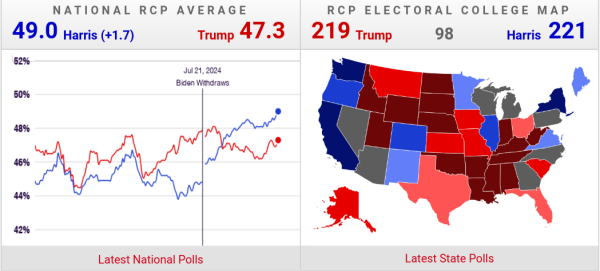
the popular vote is still being led by Kamala Harris by 2%. Many people believed that Kamala Harris had outperformed Trump in the debate which is definitely evident in the increase of her votes. However, seeing that Trump’s vote has stayed the same may indicate that many voters have made up their mind before the debate, and it may not dictate the outcome of the election.


